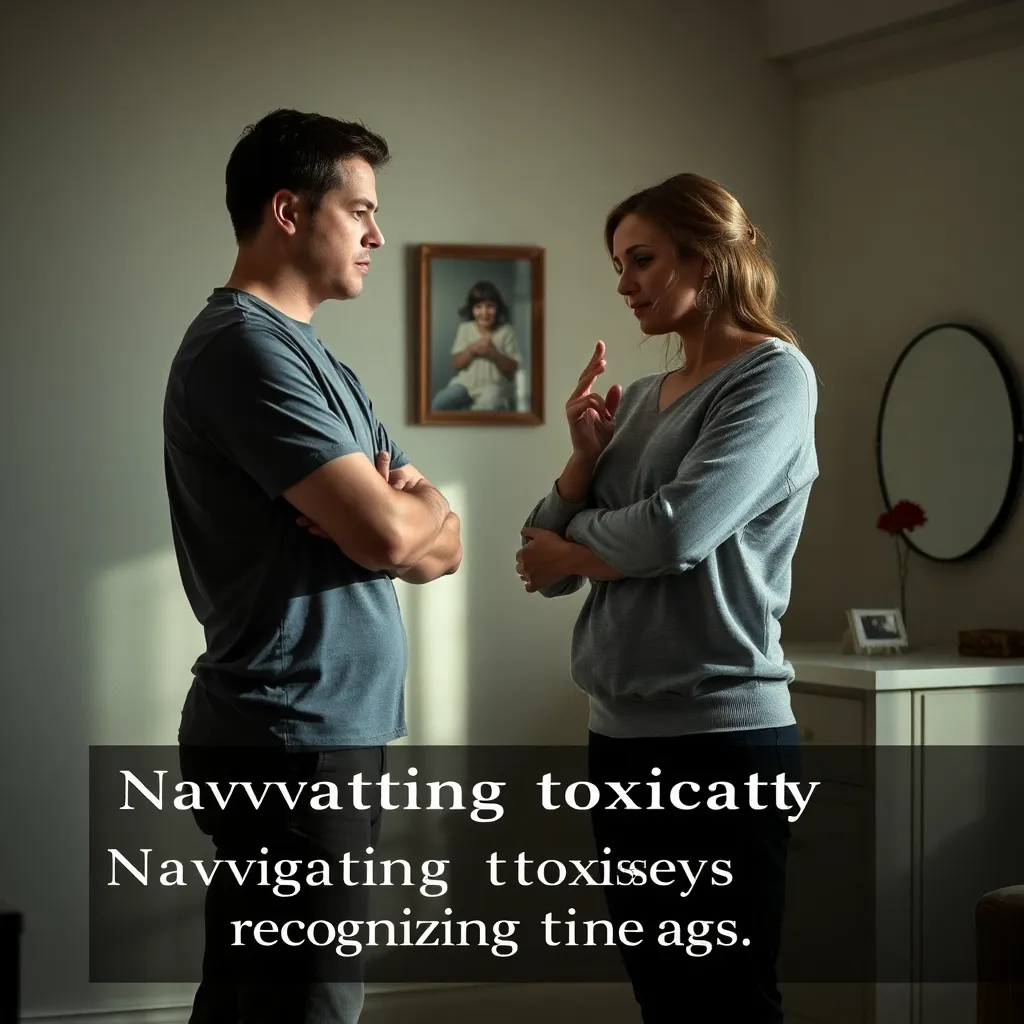Navigating the emotional landscape of a relationship with a narcissist can be both confusing and challenging, especially when vulnerability enters the picture. You might find yourself wondering how to cope when a narcissist feels exposed or when they face rejection, often triggering a whirlwind of complex emotions and reactions. Understanding these dynamics is crucial, not just for your peace of mind but also for maintaining a sense of control in the relationship. It’s important to recognize the delicate balance that exists in these situations, as it can significantly impact your emotional well-being.
In this article, we will explore the intricate ways narcissists respond to feeling exposed and how they handle rejection, offering insights that can empower you in these interactions. We aim to provide you with practical strategies to manage these challenging moments while maintaining your self-respect and compassion. You’ll learn how to protect yourself emotionally and navigate these encounters with empathy and understanding. By the end, you’ll be equipped with valuable tools to handle such situations more confidently and healthily.
1. Recognizing Narcissistic Vulnerability

In relationships, it can be challenging to understand when a partner with narcissistic traits feels vulnerable. Often, their defensive behaviors may not be immediately recognizable as a sign of their underlying insecurities and fear of rejection.
Imagine a scenario where your partner reacts harshly to constructive feedback. What might seem like an overreaction could actually be their mask slipping, revealing a fear of inadequacy or being less than perfect.
Experts suggest that narcissists often attempt to maintain a façade of superiority when they feel threatened. This behavior can be a defense mechanism, shielding their fragile self-esteem from perceived criticism or rejection.
It’s crucial to observe when their tone shifts from confidence to defensiveness. Recognizing this shift can allow you to approach the situation with empathy and understanding, rather than frustration.
By acknowledging their vulnerability, you can create a safe space for open communication. This understanding can foster deeper connection and trust, turning moments of tension into opportunities for growth in your relationship.
2. Triggers of Emotional Exposure

Narcissists often feel a deep sense of vulnerability when their carefully constructed facade is threatened. This emotional exposure can be triggered by situations that challenge their sense of self-worth, such as a partner pointing out inconsistencies in their behavior. Imagine a scenario where a couple is discussing future plans, and one partner gently questions the other’s commitment. In such cases, a narcissist might feel exposed, as their need for admiration is not being met.
Another common trigger occurs when a narcissist is not the center of attention. In social settings, they might become anxious or even hostile if they perceive the spotlight shifting away from them. For example, during a group dinner, if the conversation focuses too long on someone else’s achievements, the narcissist might feel sidelined. This reaction stems from their deep-seated need for validation and control over the narrative.
Criticism, even when constructive, can also expose a narcissist’s vulnerabilities. When feedback is perceived as a personal attack, it can lead to defensive or aggressive behaviors. Consider a workplace scenario where a manager offers feedback on a project; the narcissist might interpret this as an affront to their competence. Understanding these triggers can help partners navigate conversations with empathy and patience.
Despite these challenges, it is possible to foster healthier interactions by acknowledging these triggers. By recognizing when a narcissist feels exposed, partners can approach discussions with a sense of calm and avoid escalating conflicts. Over time, this awareness can lead to a more balanced and understanding relationship dynamic.
3. Reactions to Rejection Unveiled

When a narcissist feels the sting of rejection, their initial reaction often involves a wave of intense emotions. They might experience a deep sense of shame or a bruised ego, leading to defensive or aggressive behaviors.
In real-world situations, you might observe a narcissist quickly denying any wrongdoing or attempting to shift blame onto the other person. This is a common defense mechanism to protect their vulnerable self-image from feeling exposed.
Sometimes, they might resort to manipulative tactics, such as guilt-tripping or playing the victim, to regain control of the narrative. This behavior can leave their partners feeling confused and emotionally drained, wondering how things escalated so quickly.
Experts suggest that understanding these reactions can help you navigate these turbulent interactions more effectively. By recognizing the patterns, you can better prepare yourself to respond with empathy and boundaries.
Ultimately, acknowledging the emotional turmoil beneath the narcissist’s reaction can help you approach the situation with greater understanding. This awareness empowers you to maintain your own sense of self while managing the complexities of the relationship.
4. Navigating Narcissistic Defenses

When faced with rejection, narcissists often resort to well-established defensive mechanisms to protect their self-image. These defenses might manifest as denial, blame-shifting, or even sudden bouts of aggression, making it challenging for partners to navigate the emotional turbulence.
Imagine a scenario where a narcissistic partner, upon feeling exposed, immediately shifts the focus to their partner’s perceived flaws. This tactic of diversion serves to detract from their own vulnerabilities and deflect accountability, which can leave the other partner feeling unheard and invalidated.
Experts suggest that understanding these defense mechanisms can empower you to respond with compassionate boundaries. By calmly recognizing and naming the behavior without engaging in the emotional turmoil, you can maintain your own emotional balance and avoid escalating the situation.
In a practical context, maintaining a sense of equanimity when faced with these defenses can be invaluable. This might involve taking a step back to regroup and approach the conversation at a later time when emotions are less charged.
Ultimately, by recognizing and understanding these defensive patterns, you can better navigate the complexities of a relationship with a narcissist. This awareness allows you to protect your own emotional well-being while fostering a space for healthier interactions.
5. Strategies for Healthy Boundaries

Setting healthy boundaries is crucial when dealing with a narcissist, especially when they feel exposed. Consider a scenario where you must firmly maintain your stance despite their attempts to manipulate or guilt-trip you.
To protect your emotional well-being, it’s important to communicate your boundaries clearly and consistently. For instance, if they begin to criticize you unfairly, calmly stating, “I will not engage in this conversation,” can be empowering.
Another effective strategy is to limit the time and energy you invest in the relationship. This doesn’t mean you care less; it means you are prioritizing your mental health and peace of mind.
Experts often recommend setting physical and emotional distance when necessary. By creating a safe space for yourself, you can prevent being drawn into their cycle of drama and defensiveness.
Ultimately, establishing boundaries can lead to a healthier dynamic, even if the narcissist struggles to accept them initially. It’s about fostering a space where your needs and feelings are respected, paving the way for healthier interactions.
Conclusion: Creating Beautiful Outdoor Spaces
In navigating relationships with narcissists, understanding key concepts is vital for both emotional resilience and nurturing healthier connections. First, recognize the signs of narcissistic behavior and its root causes. Second, set firm boundaries to protect your emotional well-being. Third, practice empathy without compromising your own needs. Fourth, develop communication strategies that de-escalate conflict and encourage constructive dialogue. Finally, prioritize self-care to maintain your mental health amidst challenging interactions.
As your next actionable step, take a moment to reflect on a recent interaction that left you feeling uneasy. Identify which strategies might have improved the situation and consider how you can apply them in future encounters.
Remember, building a healthy relationship requires continuous learning and adaptation. Bookmark this article for a quick reference when you need guidance or a reminder of these essential tools.
Looking ahead, embracing these strategies can lead to more harmonious relationships, characterized by mutual respect and understanding. With dedication and awareness, you’re empowered to create a supportive environment for yourself and those around you. Save this article as a resource to revisit as you continue your journey towards relationship success.
